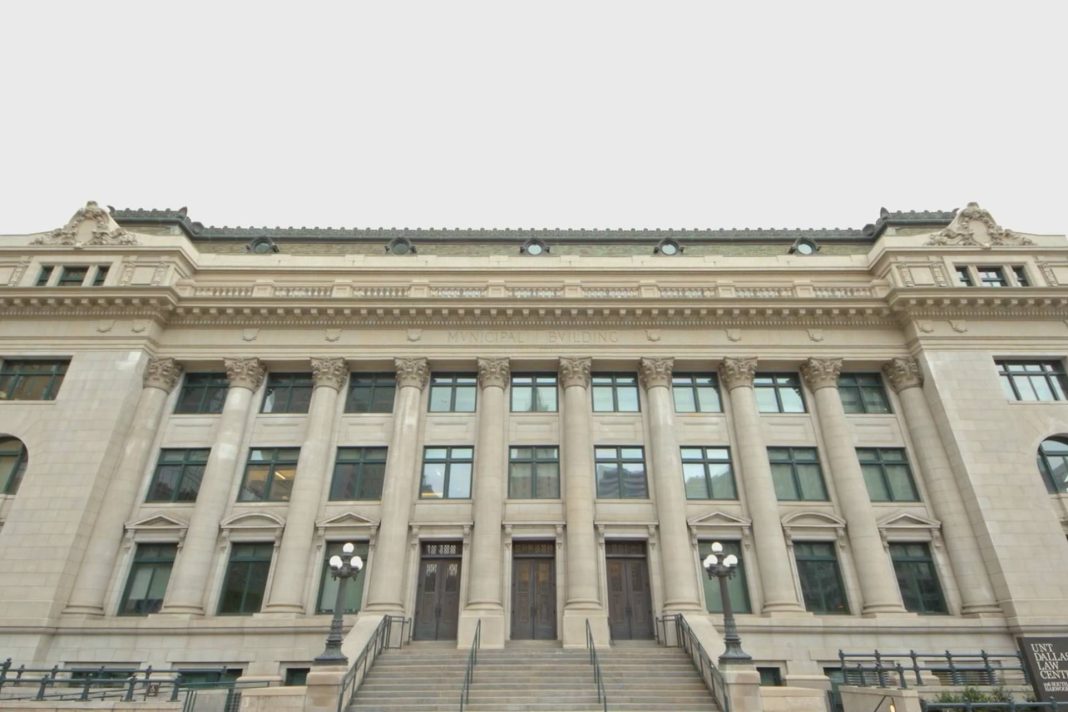The University of North Texas at Dallas College of Law has been fully approved by the American Bar Association. The law school admitted its first class in 2014 and had been operating under provisional accreditation since 2017.
“This will allow us to continue our mission of providing a high quality, affordable legal education to our students,” said Dean Felecia Epps, who has served as dean for the past three years. “I am especially proud of our College of Law faculty, staff, and students in working to achieve full approval.”
UNT Dallas College of Law is housed in the historic former Dallas City Hall in downtown Dallas. The public law school also offers a part-time evening program for working students — the only one of its kind in the Dallas-Fort Worth metroplex. Nearby schools include Texas A&M University School of Law in Ft. Worth and Southern Methodist University Dedman School of Law in Dallas.
The school is noted for its diverse student body and its focus on experiential learning. It ranked No. 1 in preLaw magazine’s Most Diverse Law Schools ranking in the Winter 2021 issue. More than half of the students are minorities, with more than 16% Black. Also, 29.3% of the school’s faculty members are people of color. Faculty numbers account for 25% of the final score, with student numbers accounting for 75%.
UNT Dallas’ mission has always been to make legal education available to anyone, and its admissions officers consider the total package of an applicant. They are not driven by law school rankings, Epps told preLaw in December 2020.
“We’re focusing on accomplishing the mission of diversifying the legal profession in all aspects,” she said. “Because [rankings aren’t] part of it, it helps us remain focused on attracting the students we need to accomplish [our mission].”
Of course, the law school gives significant weight to GPAs and LSAT scores, but its broad admissions process is also looking at the applicant’s background and leadership roles. Anything that shows the “grit,” Epps had said, is an important indicator of how an applicant will succeed in law school.
Low tuition also creates interest in the law school from diverse applicants, Epps added, with many of them being first-generation law students.
During the five-year approval process, which included four site visits, the ABA reviewed a variety of factors, including admission standards, bar exam passage rates and employment after graduation.

